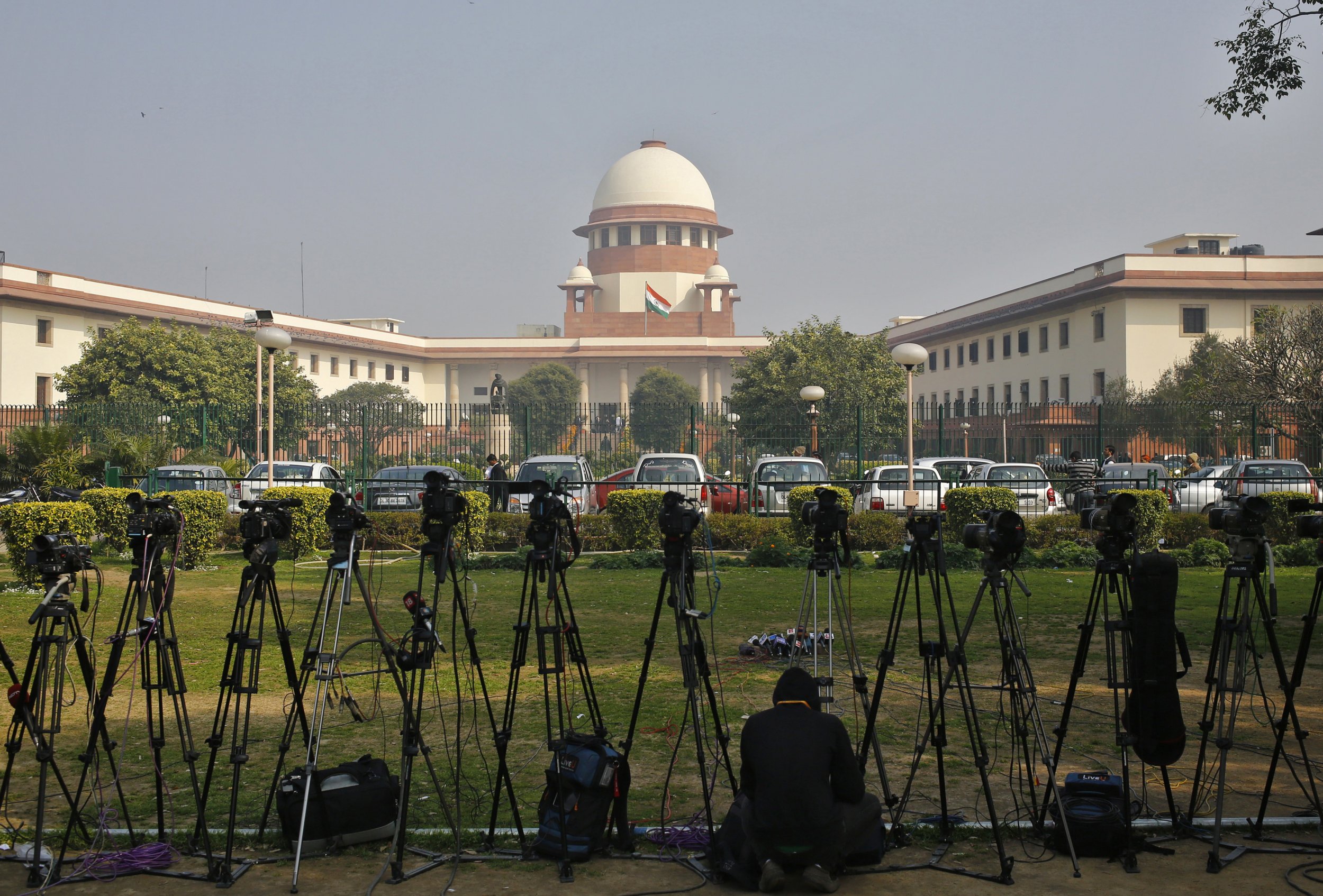
This article first appeared on the Riding the Elephant site.
For more than 30 years, India's courts have issued instructions about how the country should be run, usually filling gaps left by inefficient and indolent governments.
On November 30, however, the Supreme Court arguably went too far with judicial activism when it unexpectedly said that cinemas should play the national anthem before every film screening. Images of the Indian flag should be shown on the screen and "all present in the hall must stand while it is played" with the doors shut.
The aim was to instil "a sense of committed patriotism and nationalism," said two Supreme Court judges, displaying a degree of compulsive nationalism that one might expect from some members of Narendra Modi's governing Bharatiya Janata Party (BJP), not from independent members of the country's top court. "Be it stated, the time has come, the citizens of the country realise that they live in a nation and are duty bound to show respect to the national anthem," said the judges.
It is of course difficult for Indians, or most other people, to object to standing for the national anthem in any country, but this judgment is being widely criticized.
"The order appears to have erred the realm of judicial legislation and gone much beyond the constitutional mandate," said Soli Sorabjee, a veteran, internationally recognized lawyer and former attorney general.
Other commentators wondered about concerts, sports matches and other public events, while some wryly hoped that the courts and parliament would similarly play the anthem. Currently the law and practice varies around India, as it has for many years.
Related : A Train Crash and Black Cash Trip India's 'Post-Truth' Moment
There is concern about how the order could be implemented, and a fear that nationalist extremists linked to the BJP will use it to persecute people and cause havoc inside cinemas. In October, a wheelchair-bound international tennis player was reported to have been kicked for not standing while the anthem was played in a Goa theatre.
Activist petitioners
The Supreme Court ruling was issued in response to a public interest litigation (PIL) petition by Shyam Narayan Chouksey, 78, an activist who 13 years ago complained to the Madhya Pradesh high court that a film depicted the anthem in a poor light and should be banned. The judge then was Justice Dipak Misra, one of the two Supreme Court judges who wrote the new anthem ruling. In 2003, Misra ruled in favour of Chouksey, but was overruled by the Supreme Court.
Petitioners like Chouksey have used PILs since the end of the 1970s to develop judicial activism and mobilize the courts to intervene in government. Cases were first accepted and adjudicated by judges to provide people with protection and social justice, irrespective of whether they were brought by aggrieved parties or other plaintiffs.
Such judicial activism is a controversial issue in many countries. In India, judges have radically extended their remit since the 1970s and have taken over the role of government. They frequently reflect public opinion or a national need for action, though the national anthem order was issued suddenly without any public demand or debate.
Cases have ranged from protecting bonded labor and enforcing environmental regulations to ordering buses to be powered by compressed natural gas; canceling telecom and mining contracts; and challenging food distribution systems. In 1996, a judge in Delhi even started her own case against the municipal authority for allowing rubbish to pile up in the streets—it was quickly cleared.
In the past year, the Supreme Court has ordered state government to stop temples encroaching on footpaths, to ban new diesel car registrations; and told Delhi state government to use helicopters for emergency air services. It has asked which airlines would benefit from national aviation agreements with the UAE; has chased the national cricket board (BCCI) to implement reforms; and has tried to intervene in how the country's disaster management is funded.
In April, Pranab Mukherjee, India's president and a former top Congress politician, warned against excessive judicial activism. In a speech at the National Judicial Academy, he acknowledged that "for the enforcement of fundamental rights, the Supreme Court, through judicial innovation and activism, has expanded the common law principle of 'locus standi.'"
He also said, however, that, "Each organ of our democracy must function within its own sphere and must not take over what is assigned to the others…. Judicial activism should not lead to the dilution of separation of powers, which is a constitutional scheme."
Arun Jaitley, the finance minister and a top lawyer, went further and said that "step by step, brick by brick, the edifice of India's legislature is being destroyed."
These remarks came at a time when the government and courts have been battling over the degree of public influence on top judicial appointments and when there is growing concern about the massive backlog of cases in the judicial system—over 20 million cases are pending.
That has led many commentators to wonder whether the courts, and especially the Supreme Court, wouldn't serve the country better by processing outstanding cases instead of pandering to the whims of a veteran campaigner with an unnecessary order that will be hard to implement and could cause social problems.
John Elliott writes from New Delhi. His latest book is IMPLOSION: India's Tryst With Reality (HarperCollins, India).
Read more from Newsweek.com:
Stubborn May Taught Hard Trade Lessons in India
Modi's Assault on Black Money Leaves Indians in Despair
What Spurred The Coup At the Top of Tata?
Uncommon Knowledge
Newsweek is committed to challenging conventional wisdom and finding connections in the search for common ground.
Newsweek is committed to challenging conventional wisdom and finding connections in the search for common ground.
About the writer
To read how Newsweek uses AI as a newsroom tool, Click here.








